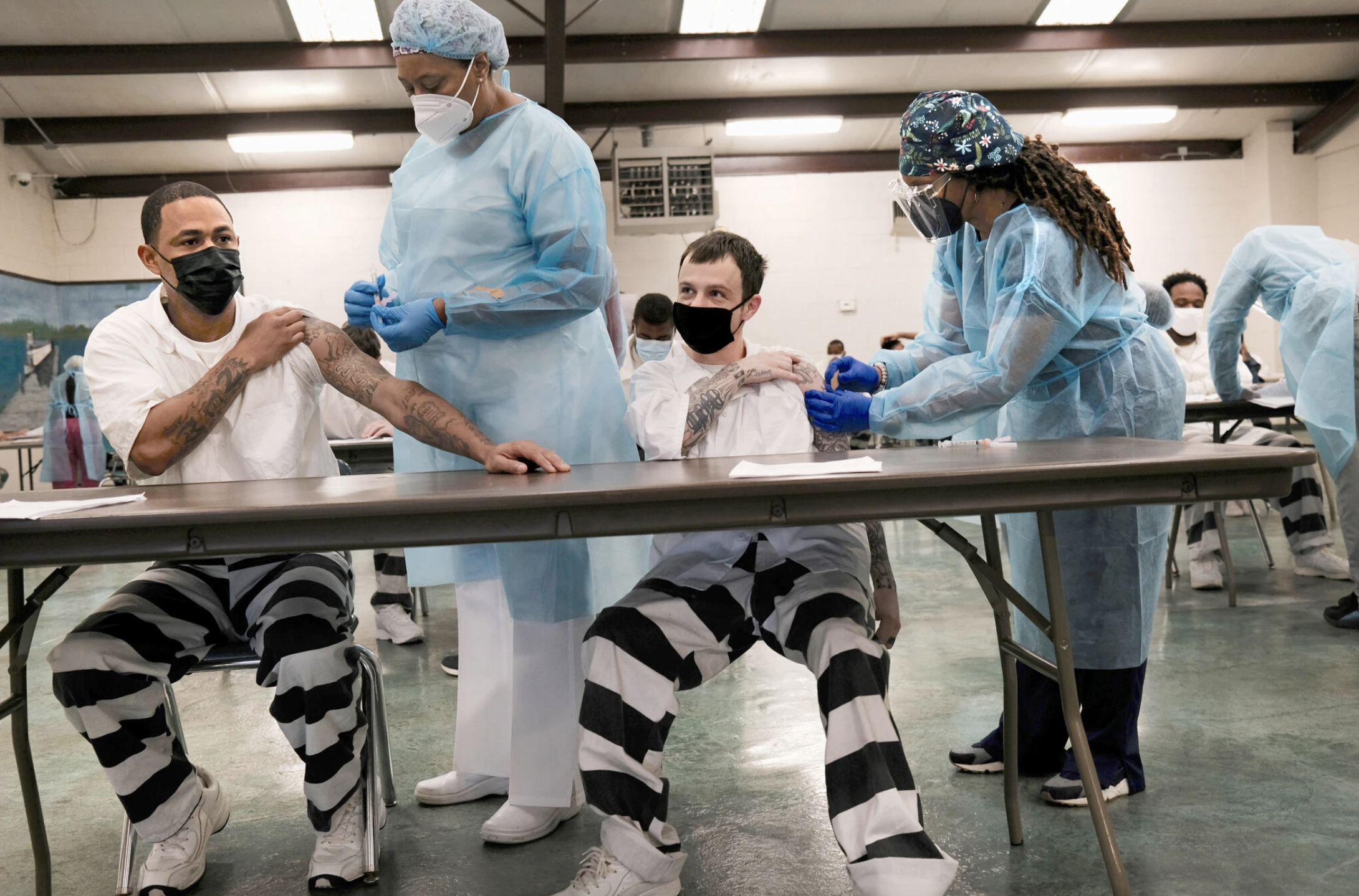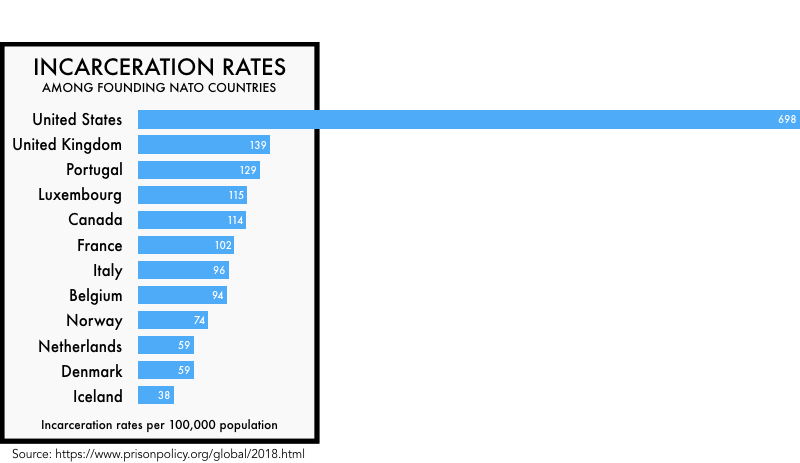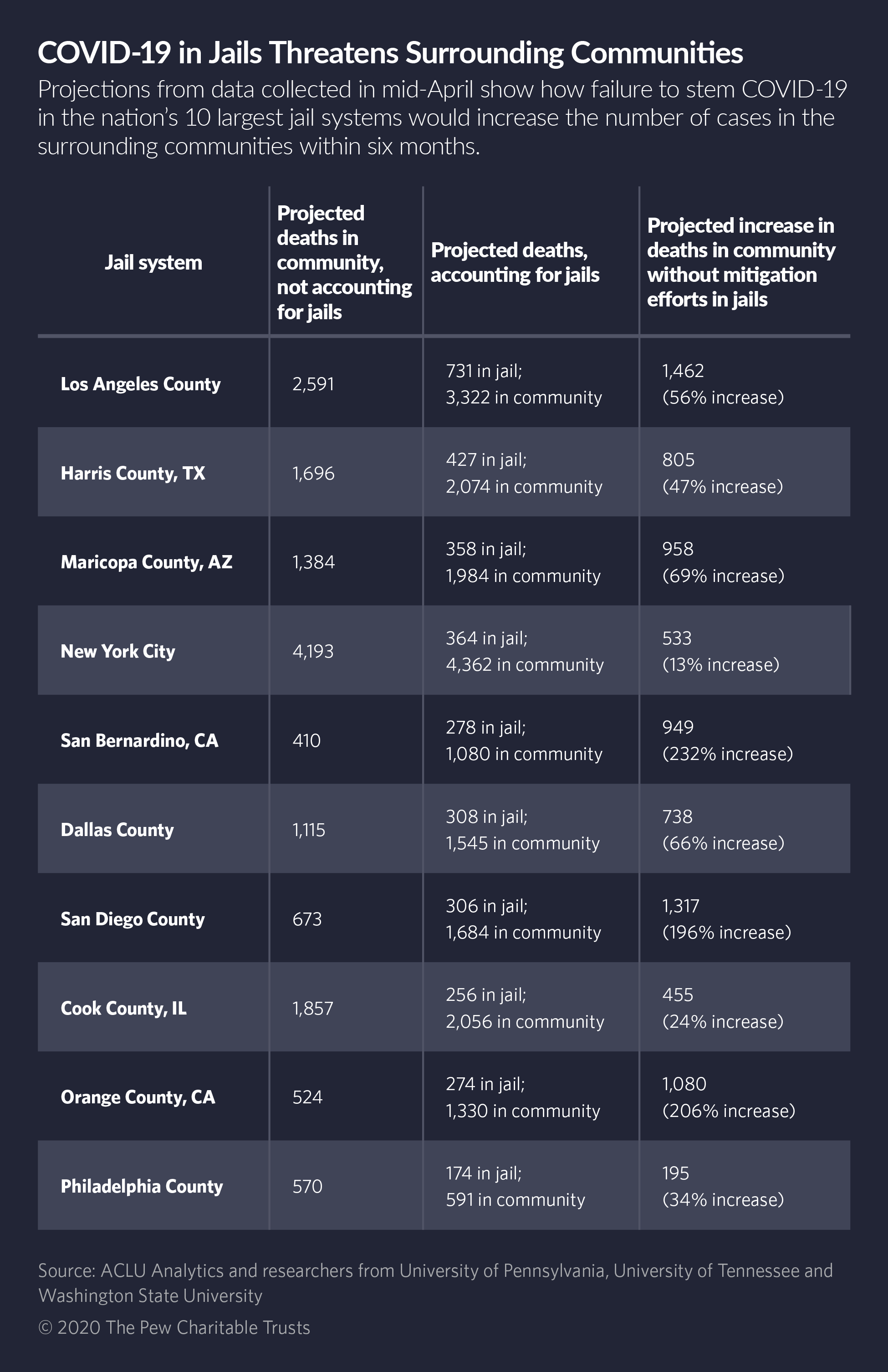Ever since the pandemic hit in March 2020, every single person around the world has been hurt by its effects. One large group of people that may not be at the forefront of most people’s minds are the millions of people locked up in America’s jails and prisons.

“Breaking barriers: Two incarcerated individuals receive the COVID vaccine, a pivotal step toward health equity within America’s prison system.”
Soon after doctors and scientists began to study the virus and learn that it was the most dangerous to older individuals or those with various chronic health problems. They also learned that keeping distance and quarantine is the most effective way of stopping the spread.
While the outside world was locked up in their homes, avoiding contact with everyone outside their immediate families, prisoners, and their staff were not able to do this. As soon as just one member of the prison contracted the virus, it spread like wildfire.
A study has found that prisoners are five and a half times more likely to be infected by Covid-19, and three times more likely to die from it. Why? Close living quarters, lack of necessary medical treatments, poor ventilation, and overall overcrowding. America saw a huge rise in their cases, and prisons contribute to a large percentage of that number.
The reason American prisons are struggling to provide mandatory resources for prisoners comes down to an underlying issue that has faced this country for decades: mass imprisonment. America’s incarceration rate nearly doubles almost any other country in the world. The United States is responsible for approximately five percent of the world’s population,

“Behind bars: Graph comparing the United States’ staggering incarceration rate per 100,000 population against other nations, highlighting the urgent need for criminal justice reform.”
yet it somehow houses 25% of the world’s prison population. Not only does America have more people put in prisons, but we also have longer sentences and jail people for minor crimes, unlike many other countries’ criminal justice systems. In the 70s, the United States became “tough on crime.” This idea began with President Nixon’s war on drugs but was expedited by President Reagan after he doubled the US prison population in just eight short years.

“COVID tolls: Graph contrasting death rates within jails against community rates across different counties.”
Over a year and a half into the pandemic, after months of watching riding death tolls on the news, advancements have been made in creating a vaccine to prevent the spread and death rates of the virus from getting too high. It has been proven that a large piece of the cases in America is due to the spread throughout prisons, which is why it is essential to vaccinate prisoners as soon as possible. It is necessary to provide every person with the choice to get a vaccine to make progress in stopping the spread. While it is important to make sure that correctional officers and prison staff are included in these numbers, they should not necessarily be prioritized over prisoners, specifically those with other preexisting conditions that put them at higher risk.
The pandemic has shown the public small flaws that this country has created within the criminal justice system, and it is just the beginning. Reform is needed throughout the whole process. Even pre-pandemic, for prisoners to request to see a doctor, they need to pay a copay, which they already have very little money for. The lack of resources that are given to prisons and that physically go to prisoners to improve the quality of life where they are being held is minimal. America spends over 80 billion dollars keeping prisons running and fueling mass imprisonment, when in reality there are many more important causes they should be putting this money towards.
This piece is part of an ongoing series produced in Professor Betsy Weiss’s class, “Punishment and Redemption in the Prison Industrial Complex,” which is taught at Tulane University.
 NOLAbeings Multimedia artist Claire Bangser created NOLAbeings as a portrait-based story project that marries...
NOLAbeings Multimedia artist Claire Bangser created NOLAbeings as a portrait-based story project that marries...  Voodoo in New Orleans: Reviving history: New Orleans fortune telling This article takes a deep dive into the history of Voodoo in New Orleans, its hybridization with Catholicism, and its present-day place in the city's culture. The author visits fortune-tellers in the French Quarter, using their guidance as a tool for introspection rather than a deterministic predictor of the future. Through her experiences in New Orleans, the author feels a mystical connection to both the past and the future.
Voodoo in New Orleans: Reviving history: New Orleans fortune telling This article takes a deep dive into the history of Voodoo in New Orleans, its hybridization with Catholicism, and its present-day place in the city's culture. The author visits fortune-tellers in the French Quarter, using their guidance as a tool for introspection rather than a deterministic predictor of the future. Through her experiences in New Orleans, the author feels a mystical connection to both the past and the future. 